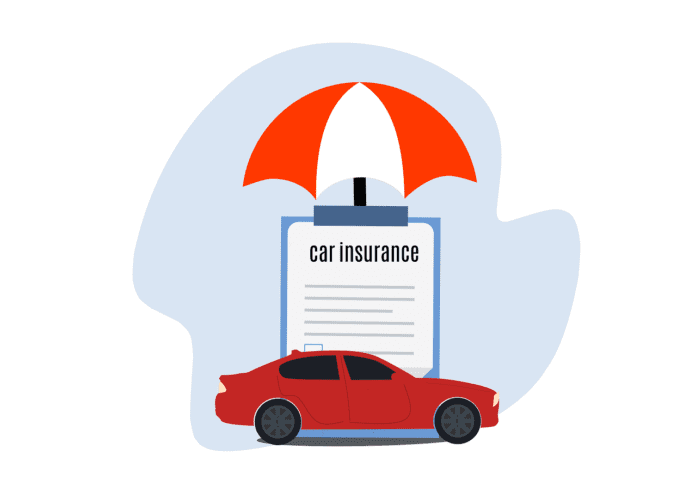Car insurance expert, Cuvva debunks 13 top myths and misconceptions that can cost you loads
Car insurance is a crucial part of owning a car, protecting both the driver and their car from a range of potential risks and damages. However, there are many myths and misconceptions surrounding car insurance that can cause confusion and potentially end up costing drivers more money.
To help clear things up and ensure drivers are well-informed, leading flexible car insurance provider, Cuvva busts some of the most common car insurance myths. From how the colour of your car affects insurance premiums to the misconception that fully comprehensive insurance covers any car you drive. If misinformed, these myths can be costly and potentially harmful if believed.
Darryl Bowman from Cuvva said “Whether you’re a seasoned driver or new to the roads, it’s important to understand the facts about car insurance to ensure you’re getting the right cover for your needs at a fair price.
“Having the right information at your fingertips means you can make informed decisions when buying car insurance and avoid pitfalls or costly mistakes. Drivers deserve access to fair and flexible car insurance without all the complexities that can come along with it.”
Here’s how to avoid car insurance myths and save as household costs rise.
- You can drive ANY car with fully comprehensive insurance
This is not true. Comprehensive car insurance policies do not automatically cover drivers to drive other cars. Although some policies include ‘Driving other cars’ cover, it is uncommon. Policies with this type of coverage come with several rules, such as the car must already have insurance, drivers must be over 25, the car must be roadworthy, and essentially is intended for emergencies.
- Car colour affects insurance prices
This is a popular myth. Insurers do not take car colour into account when calculating premiums. Changing your car colour might result in a higher premium, but only because it counts as a modification, not because of the colour itself.
- You can legally only drive someone else’s car if you’re added to their policy as a named driver
You don’t have to be added to someone else’s policy to drive their car. You can hop in anyone’s car, anytime with a standalone short-term car insurance policy and only pay for the time you’re actually behind the wheel. You can buy short-term car insurance from one hour to 28 days.
- Your renewal price is more expensive than the price offered to new customers
The Financial Conduct Authority (FCA) introduced new rules at the start of 2022 to stop insurance providers from charging existing customers more at renewal time than they would new customers. While dual pricing is a thing of the past, Cuvva urges drivers to challenge existing customers if they’re not happy with their quote at renewal time. Shop around and compare quotes to find the best deal.
- Parking tickets impact your premium
Parking tickets do not affect your insurance, but getting points on your licence because of a parking incident could impact your insurance.
- Third-party insurance is the cheapest option
This is not always the case, as people who opt for third-party insurance are statistically more likely to make a claim. Comprehensive cover may end up being cheaper than third-party cover, so do your homework before opting for third-party cover.
- Parking in a garage always makes insurance cheaper
It depends on various factors. Some insurers take into account that drivers may be more likely to bump their cars when parking in garages. For example, if a driver parks on a street with a low crime rate, their insurance could be cheaper if they park on their drive rather than in a garage.
- You don’t need to tell insurers about small incidents
This is a huge misconception. Drivers must report all incidents to their insurer, even minor ones that they can repair themselves. Failure to report incidents could result in insurers refusing to pay out when drivers need to make a claim.
- Non-fault claims never affect your premium
Unfortunately, non-fault claims can affect your premium as insurers look at the likelihood of a driver’s car getting damaged, not just the driver’s personal risk of getting involved in an accident. If a driver parks their car in a spot that is vulnerable to getting scraped, for instance, their premium could go up.
- You don’t have to tell your insurer about convictions that aren’t on your licence
Drivers must report all past driving convictions, even ones that have been removed from their licence.
- ‘Fully comprehensive’ covers any accidents you cause
Unfortunately, this is not true. Insurers might not pay out if a driver causes an accident due to drunk driving or other reckless driving behaviours.
- Lower mileage automatically means cheaper insurance
It’s not a given that lower mileage means cheaper insurance. Some insurers see those who drive less as riskier because they’re less experienced.
- You don’t need insurance if your car is just parked on the street
All cars need to be insured to be parked on a public street, even if it’s out of use. It can be declared to the DVLA with a statutory off-road notice (SORN) if the car is parked on private land. Doing this means the owner legally can’t drive the car and will not have to tax or insure the car while the car is declared SORN.
“Make sure you fully understand the level of cover being provided by your insurance provider before purchasing it to ensure you have the right cover to meet your needs and avoid being left in the lurch and out of pocket, if the worst were to happen,” says Bowman.
Help keep news FREE for our readers
Supporting your local community newspaper/online news outlet is crucial now more than ever. If you believe in independent journalism, then consider making a valuable contribution by making a one-time or monthly donation. We operate in rural areas where providing unbiased news can be challenging. Read More About Supporting The West Wales Chronicle


























